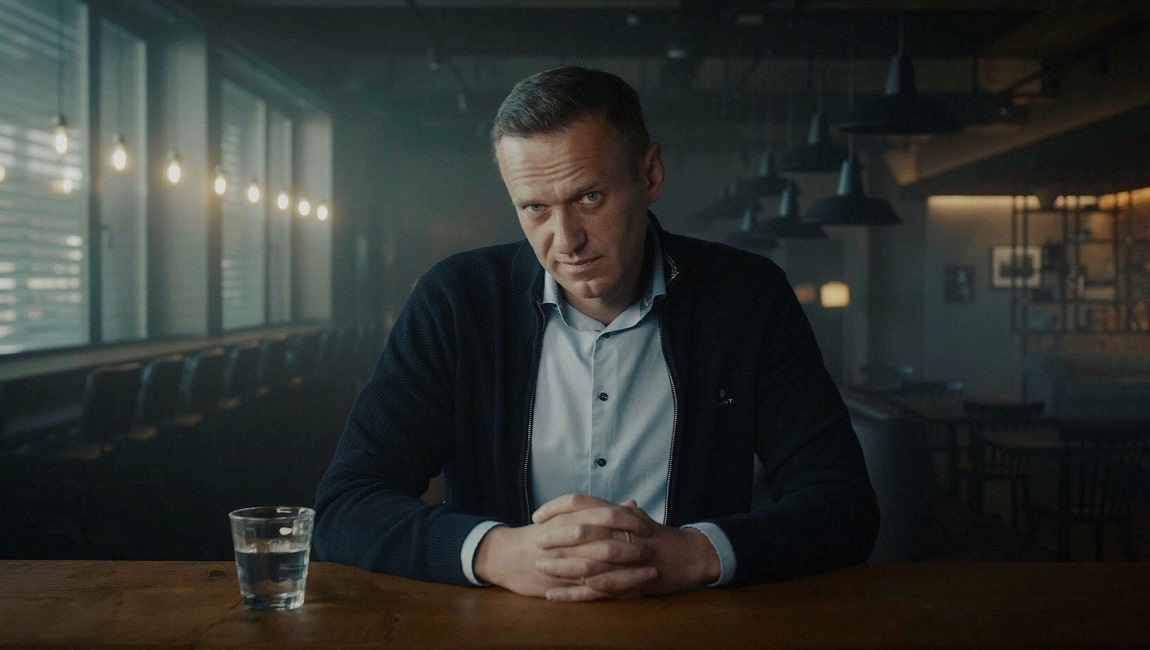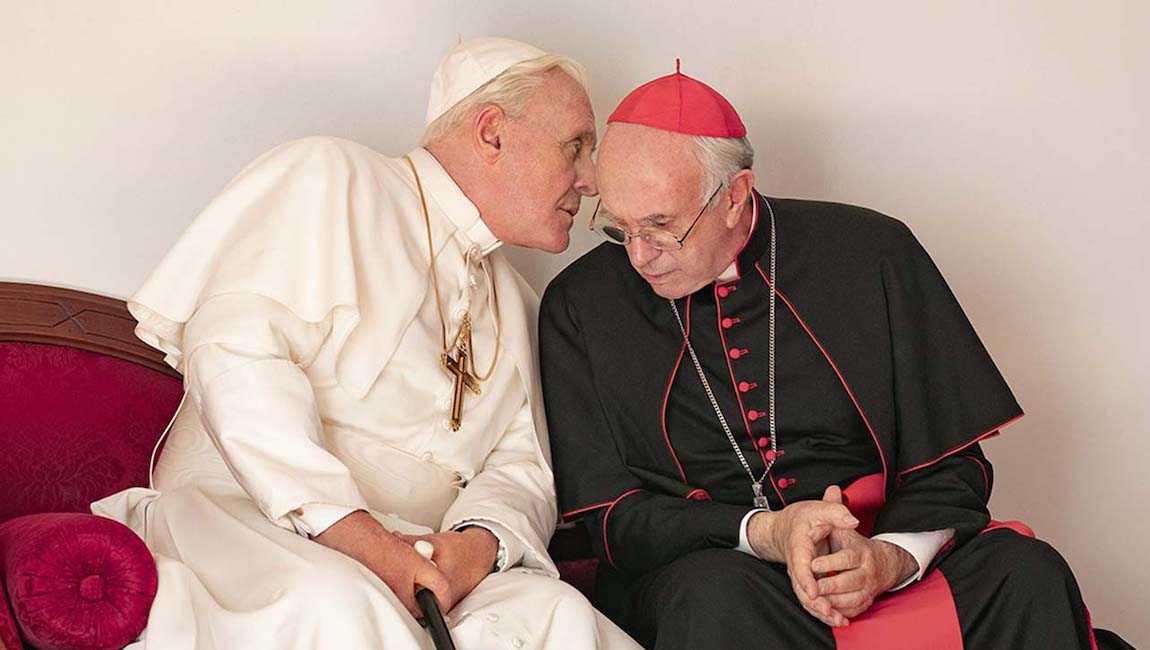Navalny is a valuable film in our age of geopolitical misinformation, but also skews toward hagiography and relies too heavily on an info-dump style format.
Presumably timed to capitalize on the recent increased interest in all things Russian, the new CNN-produced documentary Navalny finds itself getting a limited theatrical release before debuting on HBO Max and CNN+ in the coming weeks. Anyone hoping to glean insight into the mind of Putin or the invasion of Ukraine will likely be disappointed, as will anyone hoping for a bit more than the slick, info-dump style that has increasingly taken over mainstream non-fiction filmmaking (Alex Gibney has a lot to answer for). Ostensibly a portrait of Russian opposition leader and one-time presidential candidate Alexei Navalny, the film works best when it simply turns the camera on the charismatic politician and lets him speak. But director Daniel Roher tries to cram too much into too short a time; as such, the film never digs deeper than its own superficial surfaces.
Navalny begins with the man himself addressing the camera directly: it is some time after Navalny has recovered from his poisoning in 2020, convalescing in Germany. He chats with Roher, asking if the film is supposed to be about his inevitable death. The two chuckle over the insinuation, but the ominous idea lingers over the remainder of the movie. After some brief, introductory information on Navalny and his long crusade against Putin, the film cuts to two days before the poisoning incident. Navalny, his wife Yulia, and his staffers have traveled to Novosibirsk in Siberia for an anti-corruption rally. They are shocked that there seem to be no police or government agents there to stop them. While flying from Tomsk back to Moscow, Navalny begins convulsing and the plane makes an emergency landing (which we will later learn is the decisive moment that keeps him alive). Navalny is rushed to a nearby hospital, before eventually being evacuated to a facility in Germany, far away from Putin and his cronies. Outside agencies conclude that Navalny was indeed poisoned by a nerve agent that is only manufactured in one secure facility located in Moscow and known to be a favorite of Putin himself. Here the film switches gears and becomes a thriller of sorts, as Navalny and some dedicated journalists and investigators begin searching for information about who attacked him and how to link them to Putin directly.
There’s plenty of interesting stuff here; Yulia is a fascinating figure in her own right, although she’s given comparably little screen time, while archival footage of the extremely Internet-savvy Navalny at rallies and demonstrations display his remarkable ability to command a crowd (as well as an impish sense of humor). One of the investigators gives audiences a quick look at buying and selling passenger manifests on the dark web, demonstrating just how accessible our information is in this digital age. There’s even a detour into the topic du jour here in America, as Roher cuts together a montage of the disinformation campaigns and conspiracy theories surrounding Navalny’s poisoning that circulate throughout Russian state media. Pundits toss around outlandish ideas like Navalny’s symptoms being brought on by Western antidepressants, being drunk on moonshine, or simply the end result of a decadent lifestyle. But the desire to turn the film into a political thriller — replete with ominous score and rapid cross-cutting — forces otherwise valuable information to be subsumed into the artificial drama of a genre piece. Worse, the film borders on hagiography, never informing the audience about anything of substance involving Navalny’s political ideas or platforms beyond the most simplistic ideas of freedom=good and corruption=bad (true enough, but also self-evidently so). There’s one moment that threatens to really get behind Navalny’s genial façade, when Roher asks Navalny about far-right Nazi sympathizers who have frequented his rallies. But Navalny simply says that he is building a coalition against Putin, and that anyone has the right to engage in the political process in a democracy (another self-evident truth, perhaps, but one with a sticky morality that could have made for a richer, thornier film). Either way, Roher quickly ends the line of questioning, and the point is never brought up again.
Still, despite some serious qualms, there’s value to the film. It ends with Navalny returning to Russia in late 2021, knowing full well that he will be arrested for his efforts. Once his plane lands, he is immediately detained, and we are left with fuzzy video footage of a noticeably thinner Navalny behind bars. For uninformed viewers, even a CliffsNotes version of recent history is better than nothing, and if the film brings increased attention to Navalny’s plight, all the better. Roher has stated in interviews that his explicit purpose in screening the film now is to make Navalny’s profile so large that Putin and the Kremlin will have to think twice before having him killed (Navalny’s initial 18-month prison sentence was recently extended by an additional 9 years). Based on his refusal to back down from the Ukrainian invasion despite worldwide condemnation and harsh economic sanctions, it remains to be seen what Putin can and cannot be convinced of. Here’s hoping.
You can catch the Fathom Events screening of Daniel Roher’s Navalny in theaters or streaming on HBO Max and CNN+ in the near future.







